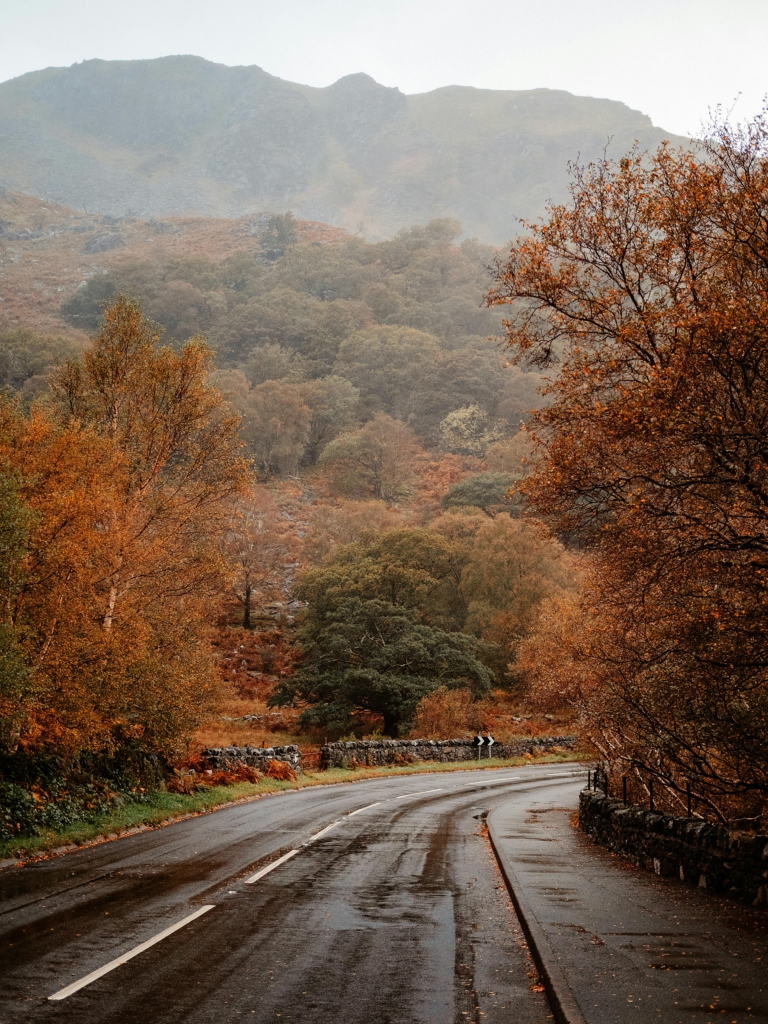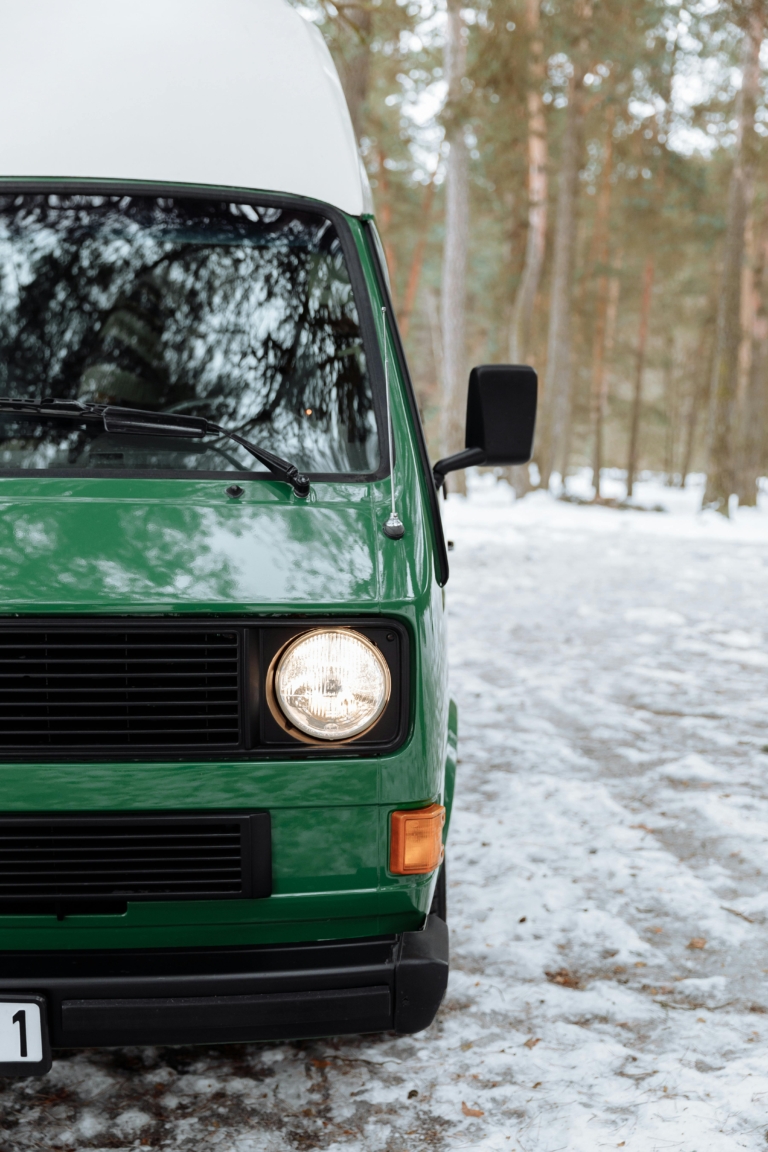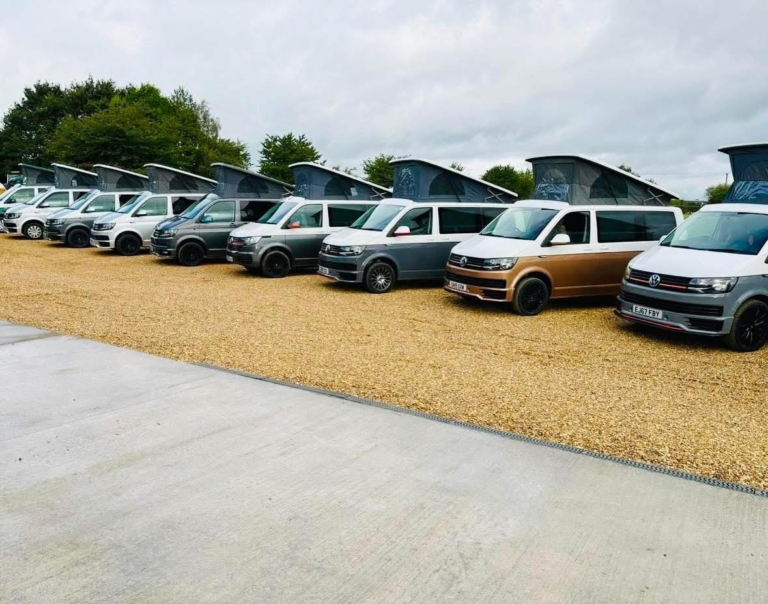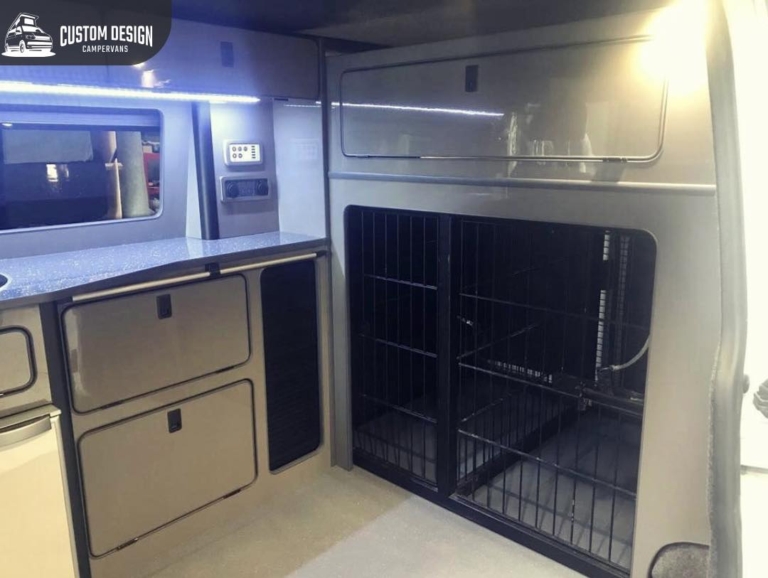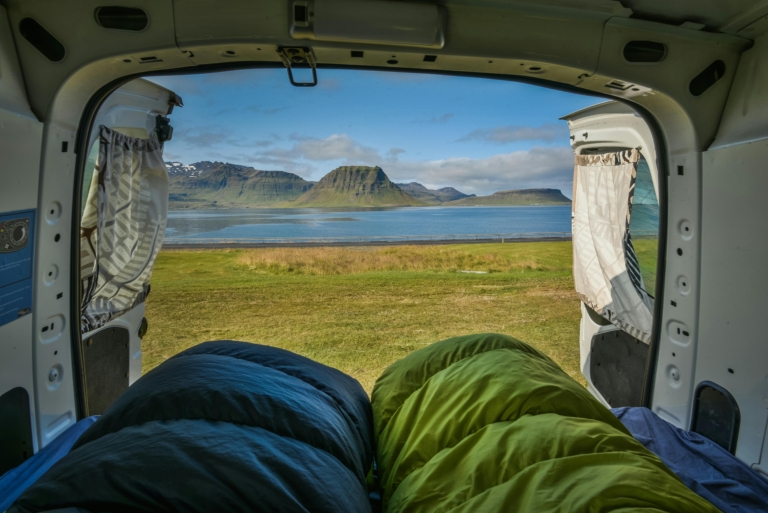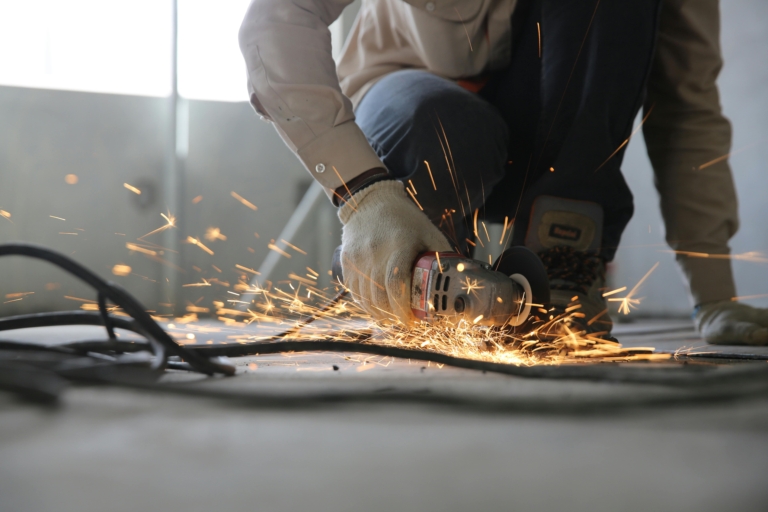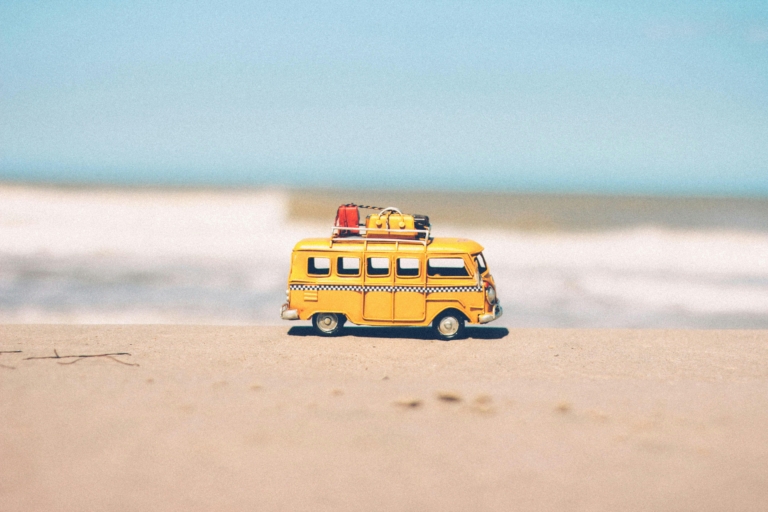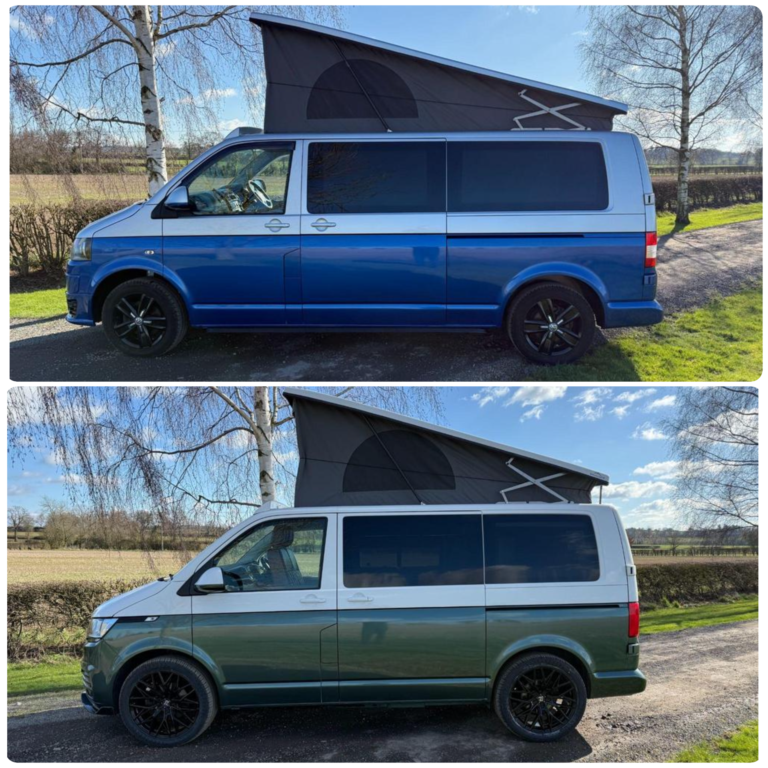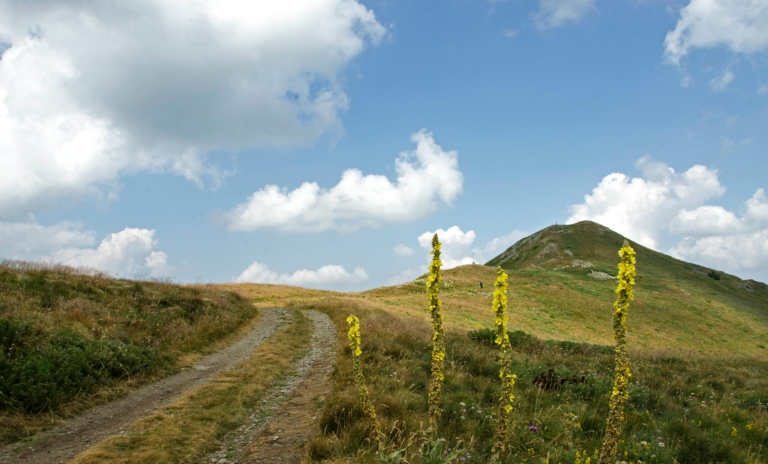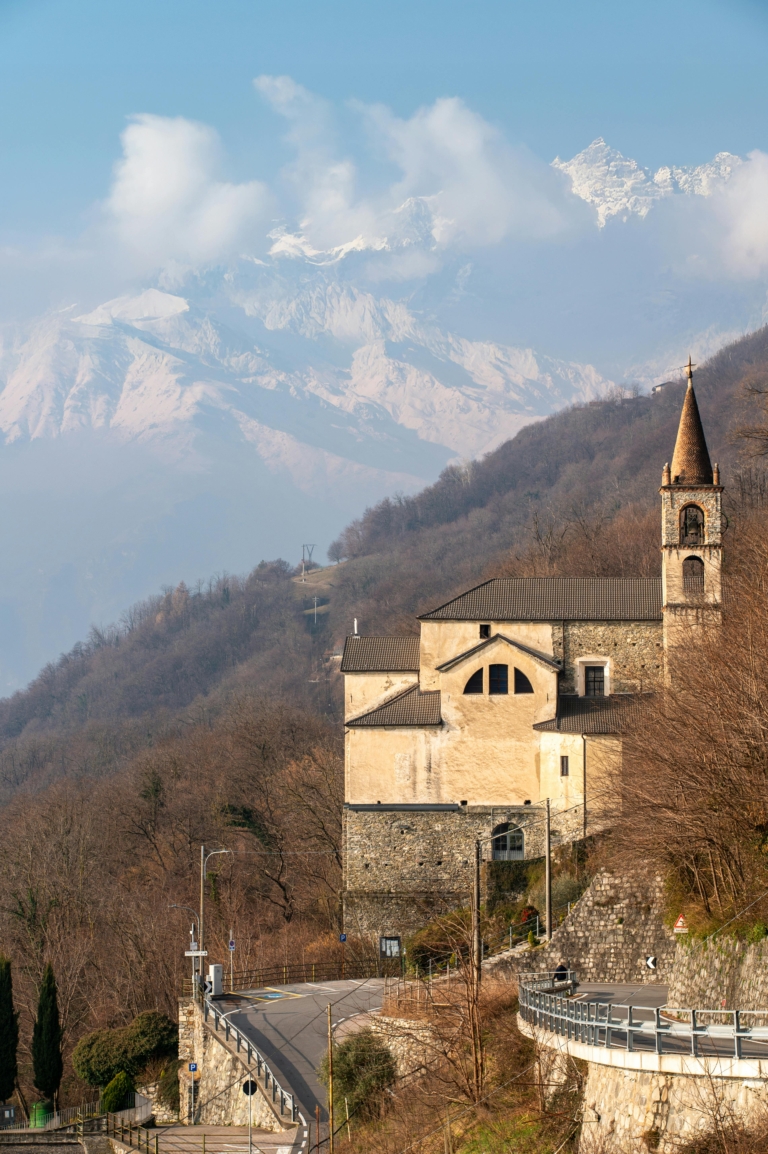There’s something incredibly liberating about going off-grid in your campervan. Waking up surrounded by nature, far from the hustle of campsites or busy roads—it’s the kind of freedom that campervan life was made for. At Custom Design Campervans, we know exactly what it takes to make off-grid adventures not only possible, but comfortable and enjoyable.
So, if you’re planning to take your Custom Design Campervan off the beaten path, here’s everything you need to know to get started with off-grid camping.
Choosing the Right Campervan for Off-Grid Adventures
First things first: your campervan. If your goal is to explore wild, rural or remote locations, then a compact and agile campervan like a VW Transporter is ideal. These smaller vans can handle tighter country roads and offer much more flexibility when it comes to parking up in more secluded spots.
However, smaller vans come with certain compromises. Most VW campervans don’t include a built-in washroom, so you’ll need to plan for alternatives like a portable or composting toilet and possibly an outdoor shower setup. If you’re only wild camping for a night or two at a time, this setup can work perfectly well.
Powering Your Off-Grid Campervan
When you’re not connected to campsite hook-ups, a reliable power source becomes essential. That’s where your leisure battery, solar panels, and inverter come into play.
At Custom Design Campervans, we fit our builds with lithium-ion leisure batteries as standard. While more expensive than traditional lead-acid batteries, lithium batteries are smaller, lighter, more powerful, and last significantly longer—ideal for regular off-grid use.
To keep your battery topped up, solar panels are a must. The more panels you have, the more time you can spend off-grid and the more electrical gear you can run. For example, LED lighting and a laptop won’t draw much power, but a fridge or water pump will quickly eat into your reserves. That’s why balancing your energy consumption with your setup is key.
Don’t forget your inverter—this device converts the 12V power stored in your leisure battery into the 230V needed to run appliances like laptops or a small TV. For most casual off-grid campers, a 400W inverter is plenty.
Staying Warm Without Hook-Ups
Heating is another essential for off-grid living, especially if you’re venturing out during colder months. Diesel heaters are one of the most efficient and reliable solutions. They run directly from your van’s fuel tank and provide consistent warmth without drawing heavily on your battery.
In many off-grid setups, diesel heating is paired with gas cooking. This allows you to keep your electrical consumption low while still having the ability to prepare hot meals. If your fridge is a three-way model, a supply of gas can also keep that running too.
Water Supply and Toilets
When you’re wild camping, you need to be self-sufficient—especially when it comes to water. You’ll need enough onboard water for drinking, cooking, cleaning, and possibly showering. It’s a good idea to know where you’ll be able to refill your water supply along the way, particularly if you’re heading out for more than a couple of days.
Toilets are another key consideration. Since VW campervans typically don’t come with built-in bathrooms, a portable or composting toilet is essential. A cassette toilet is a popular choice, but be aware that you’ll need to find a proper chemical disposal point when it fills up—please don’t empty it in the wild.
A composting toilet is another option, particularly for longer-term off-grid stays, as it’s more eco-friendly and doesn’t rely on chemicals.
Wild Camping Legally and Responsibly
While wild camping in a campervan isn’t technically a legal right in the UK, it is often tolerated if you’re respectful and discreet. That means:
- Only staying one or two nights in the same location
- Leaving no trace—take all rubbish and waste with you
- Being quiet and courteous to locals and other travellers
- Avoiding private land unless you have permission
Always check for signage or local byelaws that might restrict overnight parking. Some car parks ban camping entirely, and fines can be issued if you’re found to be in breach of the rules.
Ready to Go Off-Grid? We Can Help
At Custom Design Campervans, we build campervans with off-grid living in mind. From powerful lithium batteries and solar setups to diesel heaters and flexible water storage solutions, we’ll work with you to create a van that suits your adventure style.
Whether you’re escaping for a weekend in the Lake District or heading off on a months-long European road trip, we’ve got the tools—and the vans—to get you there.

